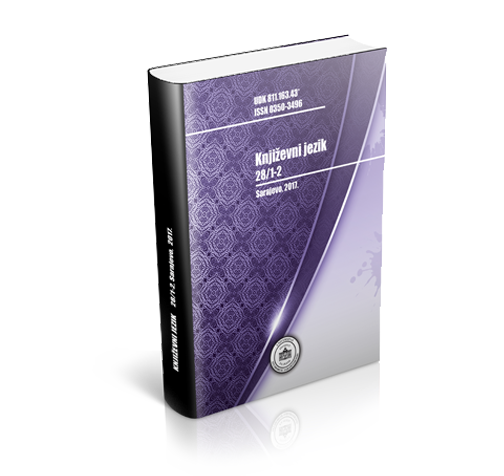Употреба зависних везника што и да освијетљена појмом пресупозиције
The notion of presupposition and the use of subordinate conjunctions što and da in Serbo-Croatian (sc)
Author(s): Midhat RiđanovićSubject(s): Theoretical Linguistics, South Slavic Languages
Published by: Institut za jezik
Keywords: Serbo-Croatian language; conjunctions što and da; presupposition; subordinate clause; factive and non-factive meaning;
Summary/Abstract: The conjuctions što and da are used in subordinate clauses if the central word in the predicate of the corresponding main clause is a verb, an adjective, or a noun indicating the speaker’s mental or emotional attitude to what is expressed in the subordinate clause. As a general rule, što is used if the speaker presupposes that what is expressed in the subordinate clause is a fact, da being used otherwise. In addition to being either ’factive’ or ’non-factive’, SC verbs, adjectives, and nouns of ’mental attitude’ may also be ’bivalent’ in relation to factivity (e. g. voljeti ’like’, bojati se ’be afraid’), in which case što is used with a factive meaning and da with a non-factive one e. g. Ne volim što kasnite and Ne volim da kasnite). Da may exceptionally be used in the subordinate clause after a factive predicate (usually only if the central word in the predicate is common im colloquial speech) in the main clause (a) if the tenses used indicate that the state or action of the subordinate clause preceded that of the main clause, and (b) if the predicate of subordinate clause is marked by the feature /+ stative/ regardless of the tenses used in the sentence; less frequently also if this feature is /— stative/ provided the context is supportive as a factual interpretation.
Journal: Književni jezik
- Issue Year: 10/1981
- Issue No: 4
- Page Range: 7-13
- Page Count: 7
- Language: Croatian, Serbian

